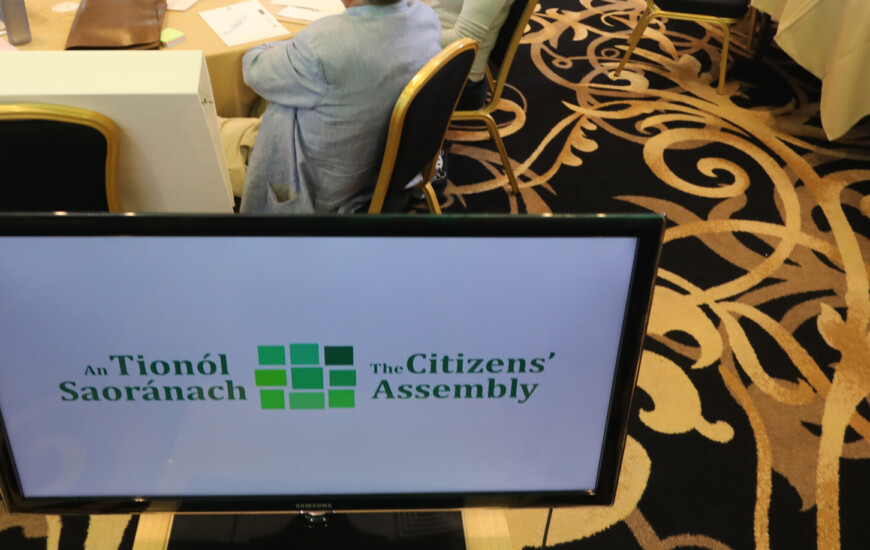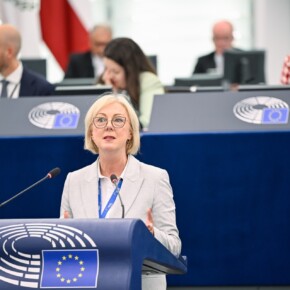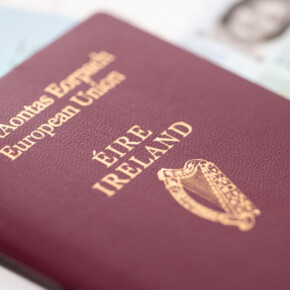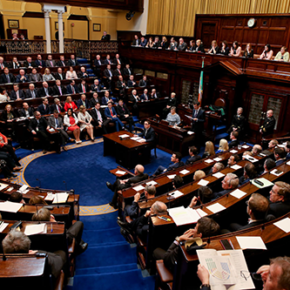Citizens’ Assembly vote for “health-led approach” to drug use
Mike Finnerty 23 Oct 2023
Members of the Citizens’ Assembly have voted to recommend the end of the current practice of prosecuting those caught with illegal substances for personal use.
The findings of the Citizens’ Assembly claim that this would effectively amount to decriminalisation.
Chair Paul Reid said recommendations have the potential to be “transformative” in the national approach to drug use.
Reid said “this has been the most comprehensive, wide-ranging, and representative discussion on all aspects of drug use policy that has ever taken place in Ireland. As the Assembly’s work developed it was clear there was a mood for change and this is represented in the recommendations that have been agreed, including significant changes to how we treat and deal with possession of drugs for personal use.
“It was also a much-needed and long-overdue national conversation. The Assembly has produced an Irish model of drug laws designed in the context of the issues and challenges we face. We heard of the devastating impact that drugs use on individuals, their families, and communities, and we have heard the voices and stories of those who work at the forefront of drug treatment, drug services, and drug prevention. We have heard arguments for a new and radical approach, and we heard calls for the maintenance of the status quo.”
Reid said “there is no time to waste here” and said there has much talk in recent times about Ireland adapting the the Portuguese approach to drugs.
In the early 2000s, the Portuguese government voted to decriminsalise small amounts of recreational drugs.
Rather than being arrested, should someone be caught with a personal supply they may be given a warning, a small fine, or told to appear before a doctor, a lawyer or a social worker about treatment, harm reduction, and possibly availing support services that are available to them.
A 2017 report from The Guardian noted that since the policy was introduced in 2001, the opioid crisis which has gripped America failed to materialise in Portugal, while HIV and hepatitis infection rates, overdose deaths, drug-related crime and incarceration rates dropped significantly, but also noted that the change towards drug policy in Portugal was coupled with a societal change in attitudes towards drug use.
Former HSE boss Reid, who chaired the assembly, said “the ball will then be firmly in the court of the elected politician; we will await their response with anticipation.”
“Ultimately, it will be up to the Oireachtas to implement what the Assembly has called for. But if they do, this will not only change the national policy and approach; it will also change people’s live, for the better.”
Reid will present An Taoiseach Leo Varadkar with the recommendations before the end of the year, and will then be discussed in the Oireachtas.
The Citizens’ Assembly was formed as a result of the Fine Gael-Labour coalition of 2011-2016, and the recommendations of the Citizens’ Assembly in 2016 proved to be instrumental in bringing a referendum on the 8th amendment to the fore.
People Before Profit TD Gino Kenny welcomed the recommendations surrounding drug policy, saying the proposals are “forward-thinking and modern.”
“This recommendation would overhaul the antiquated and failed system of criminalisation of drug use. It is an unambiguous message to the government to change course in relation to six decades of the failed policy of criminalisation.”
“It is now imperative that the government legislate for these recommendations as quickly as possible. This is a once-in-a-generation opportunity that must be grasped in order to save lives and to chart a different course in drugs policy in this country.”
Labour TD Aodhán Ó Ríordáin, who has long championed the Portuguese model of drug decriminalisation, was more cautious in his appraisal.











